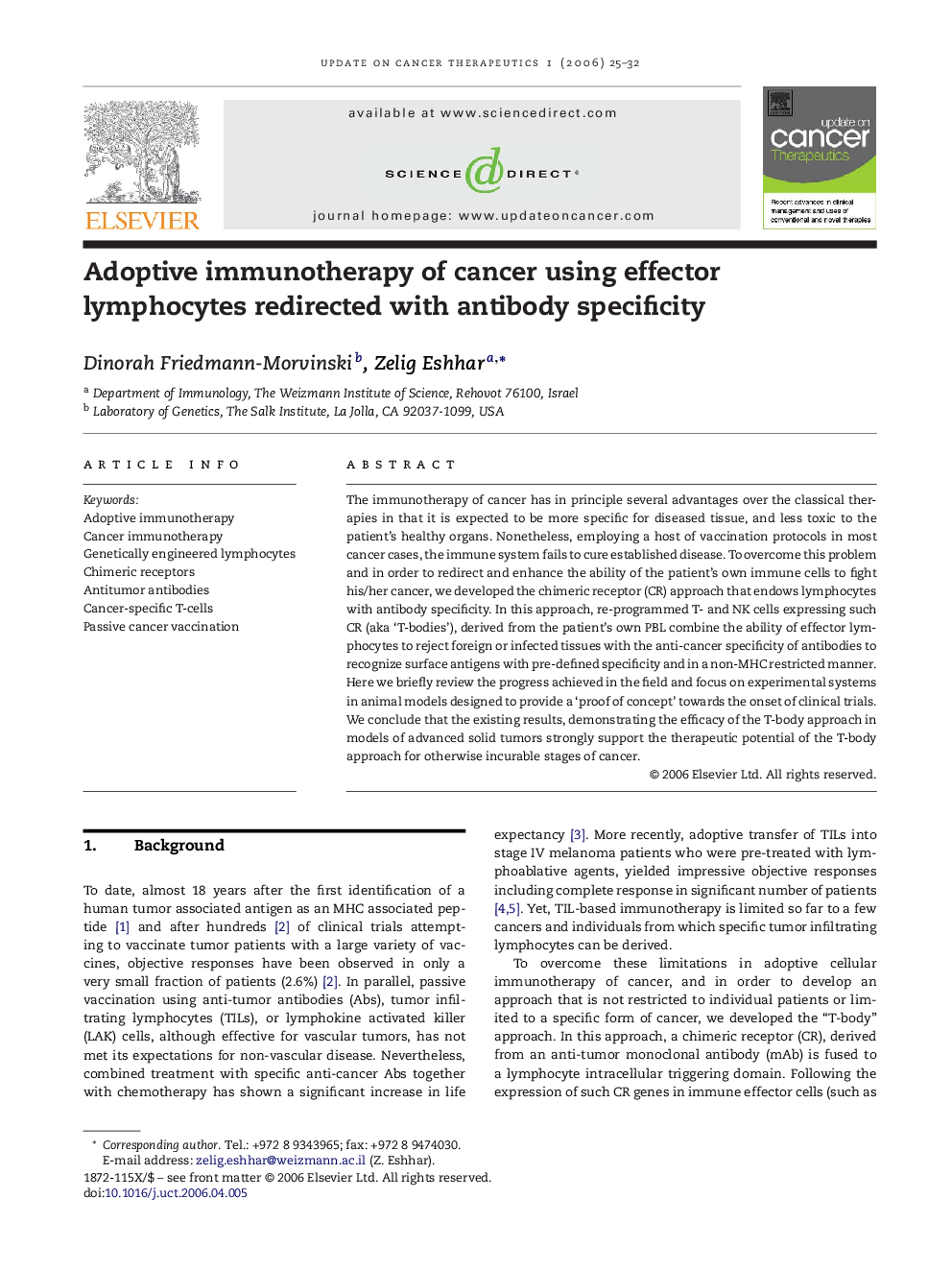| Article ID | Journal | Published Year | Pages | File Type |
|---|---|---|---|---|
| 2164314 | Update on Cancer Therapeutics | 2006 | 8 Pages |
The immunotherapy of cancer has in principle several advantages over the classical therapies in that it is expected to be more specific for diseased tissue, and less toxic to the patient's healthy organs. Nonetheless, employing a host of vaccination protocols in most cancer cases, the immune system fails to cure established disease. To overcome this problem and in order to redirect and enhance the ability of the patient's own immune cells to fight his/her cancer, we developed the chimeric receptor (CR) approach that endows lymphocytes with antibody specificity. In this approach, re-programmed T- and NK cells expressing such CR (aka ‘T-bodies’), derived from the patient's own PBL combine the ability of effector lymphocytes to reject foreign or infected tissues with the anti-cancer specificity of antibodies to recognize surface antigens with pre-defined specificity and in a non-MHC restricted manner. Here we briefly review the progress achieved in the field and focus on experimental systems in animal models designed to provide a ‘proof of concept’ towards the onset of clinical trials. We conclude that the existing results, demonstrating the efficacy of the T-body approach in models of advanced solid tumors strongly support the therapeutic potential of the T-body approach for otherwise incurable stages of cancer.
